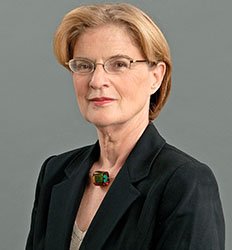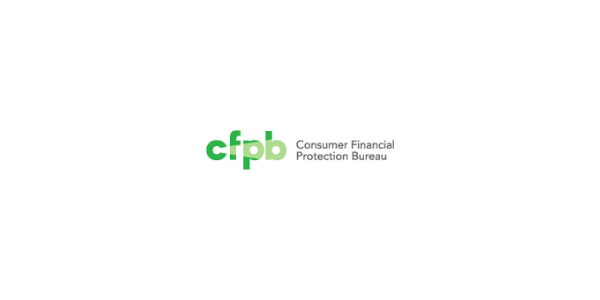
Economy Might Smell Like A Recession, But We’re Not There Yet

Mortgage brokers, originators, and loan officers dealing with business being down.
While two consecutive quarterly declines in the gross domestic product should a recession make, the only thing that seems certain for some mortgage brokers, originators, and loan officers is that business is down compared to last year, in some cases by as much as 60%.
So while the mortgage industry may be in the midst of a "housing recession," the question remains whether the overall economy is there yet.
Opinions are mixed, but brokers and MLOs know what the numbers tell them.
“In July 2021, we wrote 22 mortgages,” a combination of refis and purchases, said Ron Drabeck, president of Regional Mortgage Corp. in Orland Park, Ill. “Last month, we did nine — two refis and seven purchases.”
His Chicago-area company wrote 190 mortgages last year. This year, he expects to write about half that amount, or fewer than 100 loans.
“With the economy the way it is, it doesn’t look promising,” Drabeck said. “We’re going to have to do something, which could include laying off people.”
Rates Bouncing Around
While it looks like a mortgage market heading in one direction — south — it’s unstable, says one economist. In early August, for example, the Mortgage Bankers Association (MBA) reported that mortgage loan applications nationwide were up 0.02% on a seasonally adjusted basis, some of it due to the 30-year, fixed-mortgage rate dropping from 5.3% to 4.99%. During the same time period, refis were up 4%, but they were down 82% from that same time last year.
That changed last week, however, with the MBA reporting that mortgage loan applications were down 2.3% to the lowest level in 22 years. The 30-year, fixed-mortgage rate had risen to 5.45%, the MBA reported. Refis were down 5% from the previous week, it said, and, again, were down 82% year over year.

“Mortgage applications are normally pretty jumpy,” Moody’s Analytics economist Ryan Sweet said. “A lot of it recently has been driven by the ups and downs of mortgage rates.”
He continued, “They bounced around the last several weeks given the ebbs and flows of recession fears and expectations of what the Federal Open Market Committee (FOMC) was going to do (with the federal benchmark rate, which influences mortgage rates). Anytime interest rates drop, it creates that ‘fear of missing out’ and buyers rush in because they don’t want to miss out (on the lower interest rates).”

D. Sam Chandan, a New York University finance professor who also runs the Stern Center for Real Estate Finance Research, says mortgage rates are likely to increase.
“We’re up 200 basis points from January, and we’re looking at what I would see as another 100-basis-point increase in the 30-year, fixed-mortgage depending on how inflationary pressures unfold this year,” he said.
An Eye on Inflation and The Fed
The Consumer Price Index (CPI), often considered the inflation rate, was reported this month at an annual rate of 8.5%, down from July’s 9.1%. Much of the decline was due to the drop in gasoline prices, considered one of the primary drivers of inflation this year.
While that might provide confidence that inflation is on a downward trajectory, over the weekend it was reported that two significant energy sources used for food production and transportation — natural gas and diesel fuel — remain elevated.
Diesel fuel, which powers nearly 75% of farm equipment and is used to transport 90% of farm products, remains near $5 a gallon. Natural gas, which is used to produce fertilizer and as an energy source to dry grain, trades now 150% higher than it did last year, at nearly $9.33 per million British thermal units, which means food prices will likely remain high.
As a result, when the U.S. Bureau of Labor Statistics releases its August CPI on Sept. 13, it may show that inflation hasn’t dropped. That may prompt the FOMC to, a week later at its Sept. 20-21 meeting, increase the federal funds rate more than 50 basis points, and that could push mortgage rates higher.
In Seminole, Fla., Heather Zima, branch manager at Champions Mortgage, says people “are not qualifying for as much of a mortgage” as they once did.

“Interest rates are so much higher today,” Zima said. “I’m also seeing (potential homebuyers) with lower credit scores, and they’re just disappointed and not always that understanding.” She said they sometimes just pull out of the market as a result. Her business is down about 60% compared to last year, she added.
“We knew interest rates were going to increase, but if you couple that with price increases in homes, it has taken many out of the market,” said Lisa Puckett, a loan officer at LHM Financial in Magnolia, Texas. “Here in … the Houston market, our first-time homebuyers are struggling because private investors are buying their first-time homes and, as a result, first-time homebuyers are becoming investors’ renters.”
But she’s seeing changes, too. “Prices are starting to correct,” she said. “Sellers are having to come down (in price) because houses are staying on the market longer.”
“We have different challenges this year,” said Chuck Bricker, a mortgage loan officer with Torrance, Calif.-based American California Financial Services. “Last year, a buyer was competing with 30, sometimes 40, different offers. On the other hand, this year, you’re getting a lot less affordability in terms of interest rates, and that’s putting a dent on things.”
He added that sales prices are stabilizing, if not coming down slightly this year. He said he’s seeing 30-year, fixed-rate mortgages around 5.5% and houses in the Torrance area priced for at least $1 million.
“That’ll get you a house that’s between 1,000 to 1,200 square feet with two bedrooms and one bathroom,” he said.
While he wouldn’t go into detail, Bricker said business is “a little bit less than last year” and, as a result, he’s expanded into other kinds of loans, including Non-QM, describing it as “going well.”
What IS the Economy Doing?

As Susan Wachter, a real estate and finance professor at The Wharton School at the University of Pennsylvania, points out, “We’re in a recession if you use the shorthand of GDP (gross domestic product) being down in two successive quarters.”
The U.S. GDP — the total value of the goods and services produced — as reported by the Bureau of Economic Analysis, part of the U.S. Department of Commerce, dropped 1.6% in the first quarter this year and another 0.09% in the second quarter. As Wachter said, that’s usually the sign the economy is in a recession.
But Sweet, the economist with Moody’s Analytics, says that with the August jobs report showing nearly 530,000 people newly employed, “it’s hard to have a recession when we’re creating 400,000 to 500,000 jobs every month and unemployment is around 3.6%.”
“The easiest way to determine whether we’re in a recession is by looking at the job market,” he said. “It’s the clearest way to learn if something’s wrong with the economy.”
If employers see a drop in revenue, they’re likely to cut the hours their employees work before cutting staff, Sweet said. If revenues continue to fall, then employers are likely to implement layoffs, he said.
“We’ve never avoided a recession if the unemployment rate goes up,” he added.
Wachter says the FOMC’s recent increases in the federal funds rate, which it raises as a tool to help slow inflation, is helping.
“Their stance of, ‘we’re going to hold this until inflation gets under control’ is actually quite important and that is a plus for getting (the economy back) to normality quicker,” she said.
The federal funds rate, the interest rate banks charge one another for overnight loans, is between 2.25% and 2.5%, up from between 1.5% and 1.75% before the FOMC’s meeting last month.
While it remains uncertain whether the economy will experience a recession, there are predictions one will descend on the economy either later this year or in 2023. One economist, meanwhile, says the country is experiencing a “housing recession.”
That’s from the National Association of Home Builders Chief Economist Robert Dietz, who said recently the FOMC’s tight monetary policies increased construction costs and “brought on a housing recession,” resulting in a decline in single-family housing starts for the first time since 2011.
If a recession does inflict itself on the economy, there’s an upside to it, Wachter says. “Interest rates will fall,” and that will likely put the spurs to the mortgage market and, thus, housing sales.




